
Edgar Rice Burroughs was an American writer, best known for his prolific output in the adventure, science fiction, and fantasy genres. Best known for creating the characters Tarzan and John Carter, he also wrote the Pellucidar series, the Amtor series, and the Caspak trilogy.

Sword and sorcery (S&S) or heroic fantasy is a subgenre of fantasy characterized by sword-wielding heroes engaged in exciting and violent adventures. Elements of romance, magic, and the supernatural are also often present. Unlike works of high fantasy, the tales, though dramatic, focus on personal battles rather than world-endangering matters. Sword and sorcery commonly overlaps with heroic fantasy.The genre originated from the early-1930s works of Robert E. Howard. The term "sword and sorcery" was coined by Fritz Leiber In the May 1961 issue of the fantasy fanzine Amra, to describe Howard and the stories that were influenced by his works. In parallel with "sword and sorcery", the term "heroic fantasy" is used, although it is a more loosely defined genre.

The Wonderful Wizard of Oz is a 1900 children's novel written by author L. Frank Baum and illustrated by W. W. Denslow. It is the first novel in the Oz series of books. A Kansas farm girl named Dorothy ends up in the magical Land of Oz after she and her pet dog Toto are swept away from their home by a cyclone. Upon her arrival in the magical world of Oz, she learns she cannot return home until she has destroyed the Wicked Witch of the West.

William Hope Hodgson was an English author. He produced a large body of work, consisting of essays, short fiction, and novels, spanning several overlapping genres including horror, fantastic fiction, and science fiction. Hodgson used his experiences at sea to lend authentic detail to his short horror stories, many of which are set on the ocean, including his series of linked tales forming the "Sargasso Sea Stories". His novels, such as The House on the Borderland (1908) and The Night Land (1912), feature more cosmic themes, but several of his novels also focus on horrors associated with the sea. Early in his writing career Hodgson dedicated effort to poetry, although few of his poems were published during his lifetime. He also attracted some notice as a photographer and achieved renown as a bodybuilder. He died in World War I at age 40.
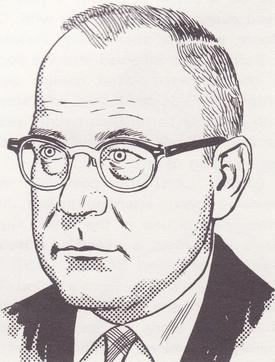
Gardner Francis Cooper Fox was an American writer known best for creating numerous comic book characters for DC Comics. He is estimated to have written more than 4,000 comics stories, including 1,500 for DC Comics. Fox was also a science fiction author and wrote many novels and short stories.

Lieutenant Colonel Robert Peter Fleming was a British adventurer, journalist, soldier and travel writer. He was the elder brother of Ian Fleming, creator of James Bond.

Philip Foglio is an American cartoonist and comic book artist known for his humorous science fiction and fantasy art.

Howard Pyle was an American illustrator, painter, and author, primarily of books for young people. He was a native of Wilmington, Delaware, and he spent the last year of his life in Florence, Italy.

Adventure fiction is a type of fiction that usually presents danger, or gives the reader a sense of excitement. Some adventure fiction also satisfies the literary definition of romance fiction.
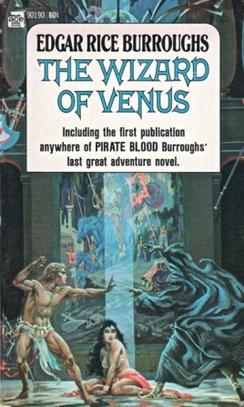
The Wizard of Venus is a science fiction novella by American writer Edgar Rice Burroughs, as well as the title of a collection in which it was later published together with an unrelated story. "The Wizard of Venus" is the final story in Burroughs's Venus series. Written in 1941, the piece remained unpublished until 1964, fourteen years after the author's death. Burroughs intended it to be the opening piece in a sequence of stories to be brought together later in book form, as he had done in the instance of the previous Venus volume, Escape on Venus. He began the first follow-up tale, only to abandon the project in the wake of the Japanese attack on Pearl Harbor; the text of the aborted sequel is now lost.

The Captain was a magazine featuring stories and articles for "boys and old boys", published monthly in the United Kingdom from 1899 to 1924. Its headquarters were in London. It is perhaps best known for printing many of P. G. Wodehouse's early school stories.

Armstrong Wells Sperry was an American writer and illustrator of children's literature. His books include historical fiction and biography, often set on sailing ships, and stories of boys from Polynesia, Asia and indigenous American cultures. He is best known for his 1941 Newbery Medal-winning book Call It Courage.
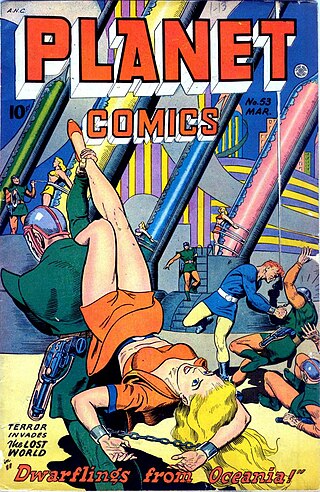
Planet Comics was a science fiction comic book title published by Fiction House from January 1940 to Winter 1953. It was the first comic book dedicated wholly to science fiction. Like most of Fiction House's early comics titles, Planet Comics was a spinoff of a pulp magazine, in this case Planet Stories. Like the magazine before it, Planet Comics features space operatic tales of muscular, heroic space adventurers who are quick with their "ray pistols" and always running into gorgeous women who need rescuing from bug-eyed space aliens or fiendish interstellar bad guys.

Agnes Giberne was a prolific British novelist and scientific writer. Her fiction was typical of Victorian evangelical fiction with moral or religious themes for children. She also wrote books on science for young people, a handful of historical novels, and one well-regarded biography.

Be An Interplanetary Spy is a series of twelve interactive children's science fiction books designed by Byron Preiss Visual Publications and first published by Bantam Books from 1983 to 1985.
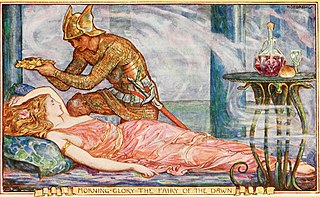
Fantasy is a genre of speculative fiction involving magical elements, typically set in a fictional universe and usually inspired by mythology or folklore. The term "fantasy" can also be used to describe a "work of this genre", usually literary.

A novel is a relatively long work of narrative fiction, typically written in prose and published as a book. The English word to describe such a work derives from the Italian: novella for "new", "news", or "short story of something new", itself from the Latin: novella, a singular noun use of the neuter plural of novellus, diminutive of novus, meaning "new". According to Margaret Doody, the novel has "a continuous and comprehensive history of about two thousand years", with its origins in the Ancient Greek and Roman novel, in Chivalric romance, and in the tradition of the Italian Renaissance novella. The ancient romance form was revived by Romanticism, in the historical romances of Walter Scott and the Gothic novel.
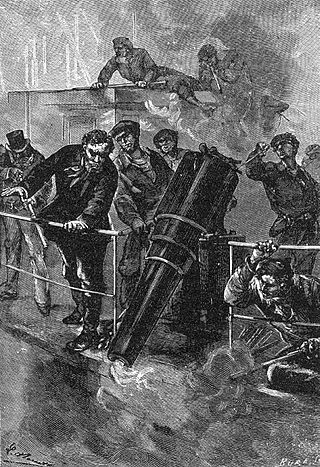
Air pirates are a class of stock character from science fiction and fantasy.

Brian Lee Durfee is an American wildlife, landscape, and fantasy painter, and a fantasy and horror writer. His paintings have appeared in various genre and other magazines, games, and books. One of his wildlife paintings is in the permanent collection at the Grand Canyon National Park visitors center.

The type of romance considered here is mainly the genre of novel defined by the novelist Walter Scott as "a fictitious narrative in prose or verse; the interest of which turns upon marvellous and uncommon incidents", in contrast to mainstream novels which realistically depict the state of a society. These works frequently, but not exclusively, take the form of the historical novel. Scott's novels are also frequently described as historical romances, and Northrop Frye suggested "the general principle that most 'historical novels' are romances". Scott describes romance as a "kindred term", and many European languages do not distinguish between romance and novel: "a novel is le roman, der Roman, il romanzo".




















